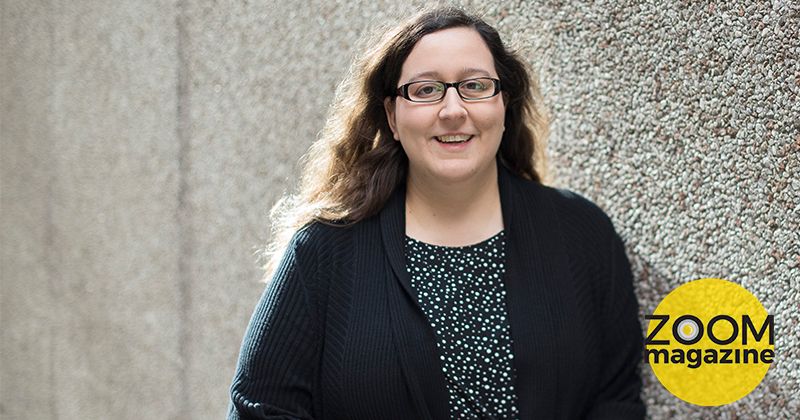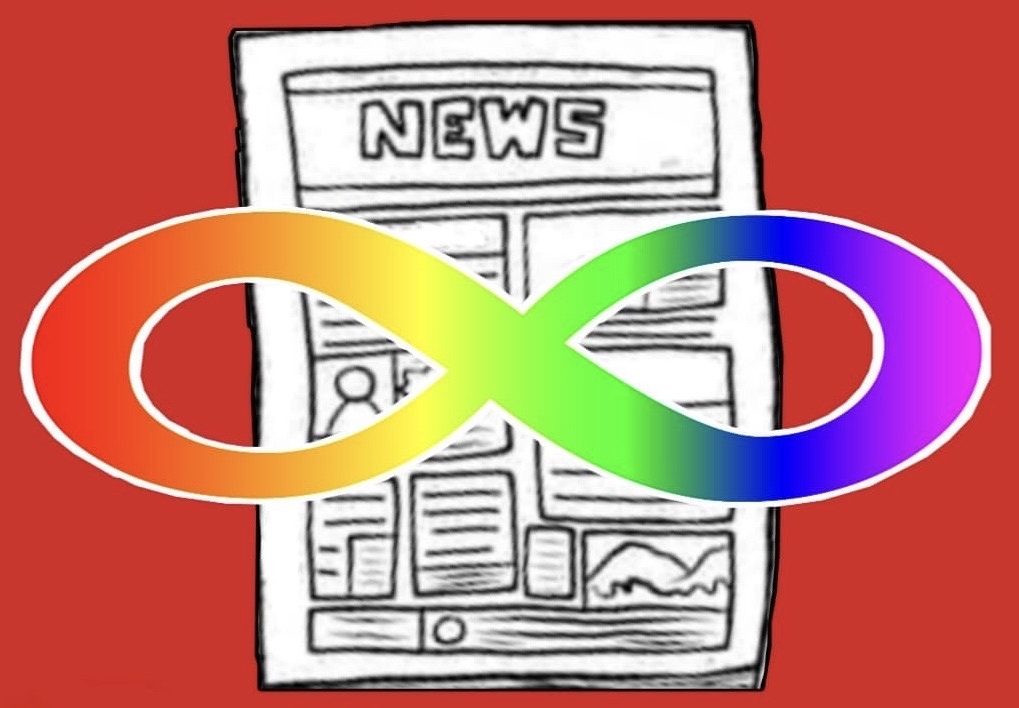
In Neurodiversity News this week, we have had the privilege of interviewing Julia Bascom, who is the Executive Director of the Autistic Self Advocacy Network (ASAN).
Neurodiversity News: Tell me about yourself and what you do.
Julia Bascom: I am the Executive Director of the Autistic Self Advocacy Network. ASAN is a self-advocacy organization; that means we are run by and for people with disabilities (in our case, autistic people), speaking out about issues that impact our community. We are a disability rights organization, which means that we see autism and other disabilities as a civil rights issue. We think that the goal of autism advocacy should be a world in which autistic people enjoy equal access, rights, and opportunities. There are a lot of different ways to help achieve this; we focus mainly on policy advocacy, which means changing laws, regulations, courts, and government programs to make sure they are enforcing people’s civil rights.
Being Executive Director means I work with a lot of different partners to advance our goals. I work with Congressional offices on developing and trying to pass legislation. I work with federal agencies on what their programs and regulations should or shouldn’t do. I build partnerships with other disability rights organizations so that we can fight for the same thing, and I also build relationships with other civil rights organizations that don’t focus on disability so we can work together to serve autistic people who experience multiple marginalizations. I explain what we’re doing to the media, and I pitch our work to funders so that we can do more of it. And most importantly, I try to make sure things at ASAN are running smoothly and that our staff have what they need in order to keep doing incredible things.
NN: Could you tell me about your journey of what brought you to where you are now as Executive Director of ASAN?
JB: I got involved in the neurodiversity movement when I was a teenager, reading and writing and talking online with other autistic people. I also interned in some self-contained special education classrooms, and what I saw in those classrooms really radicalized me. Those were some of my first experiences spending a lot of time with people with intellectual disabilities, people who were nonspeaking, and people who needed 24/7 support, and I was really upset by the way they were so often treated. I really enjoyed being with those students–we really connected, and their humanity and worth and dignity was very clear to me. Our relationships were complex, and we communicated about a lot of different things and had really rich interactions, every day. But it was also really clear to me that our disabilities were actually very similar, but that we were treated super differently based on some very small and arbitrary things, like our appearances or how we tested. And in the outside world’s opinion, those differences justified segregation, deprivation of communication, denial of education, loss of autonomy, and other massive human rights violations. And once I knew that, I couldn’t un-know that.
I got involved in state-level advocacy as a result, and then a couple of years later I moved to DC to work for ASAN. The work I am doing today is in some ways very different, but at its core it’s the same. It’s about the idea that every single person matters, and every single person has rights. No exceptions. If we need to change the world in order to make sure that everyone is treated like a person, then that’s what we’ll do.
NN: In Loud Hands, your piece “This is Why” really resonated with me. You talk about Kimba, who was a high-support needs boy that you worked with who was institutionalized at the end of the story. How have your experiences with Kimba and others like him shaped you as an advocate? In what way has it motivated you?
JB: A little while after I wrote that piece, there was actually a bureaucratic snafu that meant Kimba got to stay in the community, at least for the next year. I don’t know what happened after I left that classroom – he was definitely still at risk of being institutionalized. But I hope he stayed free.
What I learned from Kimba, and other high-support people I know, is that no matter how someone appears, everyone has a rich inner life and a complex set of responses to their environment. And often what we think of as “challenging behaviors” are in fact very reasonable responses to unacceptable things they are asked to put up with. I learned about the importance of having access to communication alternatives besides speech, and also about the importance of just seeing someone as a person, and coming from a place of respect.
What I have learned, over and over and over again, is that no one is “too disabled” to be spoken of with respect, to be taken seriously, to be valued and celebrated and seen as they are, to make their own choices and control their own life and their own day and their own body, or to be given the same access to the broader world and the same opportunities as everyone else. We might need to adapt things or add in customized support! But support and control should never be the same thing. Support and segregation or isolation should never be the same thing. And when support people get clear on that in their own minds and start trying to support someone to live that person’s best life, as that person defines it, amazing things happen. And everyone deserves to be treated that way.
NN: What do you think are the greatest obstacles facing self-advocates who are trying to create public policy that would benefit the entire Autistic community?
JB: Very bluntly, a lot of what our community needs – like services to support community living and self-determination – is expensive. It’s worth it, but it costs more money than doing nothing. And it is very, very difficult to get policy makers to spend money right now. That’s the reality we keep coming up against over and over again.
Obviously, the existence of societal ableism, and the demeaning ways that people generally tend to see people with disabilities, are huge problems as well! But even when you can change a policy maker’s views, getting them to actually invest in our community is a herculean task. So we end up in a situation where, for example, the Americans with Disabilities Act says we have a right to live in the community! But without good services in place, that’s still not a reality for millions of us. And policy makers aren’t willing to do what it takes to actually make our rights a living, breathing reality, as opposed to just words on paper.
NN: What would you say is your greatest achievement you’ve accomplished as Executive Director?
JB: I am so, so proud of everything ASAN and the disability community did to save the Affordable Care Act in 2017. We were not supposed to win that fight. I still kind of can’t believe we did.
NN: Who are your greatest inspirations?
JB: I have learned so, so much from self-advocates who came before me, especially self-advocates with intellectual disabilities, institution survivors, and some of the leaders of the original self-advocacy movement. I am thinking about lesser-known people from my home state of New Hampshire, like Peter Flemming and Roberta Gallant, and also people who are maybe better known (although still really under-recognized), like Julie Petty, Liz Weintraub, Mel Baggs, and Cal Montgomery. I measure my advocacy against their standard.
NN: What do you hope to achieve in the future?
JB: I want every single person in our community to have access to the supports they need to live the life they want to lead. I want to end restraint and seclusion in schools, close institutions, and end guardianship. I want people with disabilities to be paid fairly and work in the same jobs as everyone else, and I want us to have whatever healthcare we need, when we need it. I want us to be safe, not fearing violence at the hands of the police or our caregivers or the state. I want us to be valued. I want us to have everything we need.
And that’s a lot. It is many lifetimes of work. But I hope I can do my part to help make it happen.

A note about the caption: why is she not described as “light skinned” or something similar? https://www.instagram.com/p/CKK62M5AosL/
Thank you for pointing that out. It has been corrected.